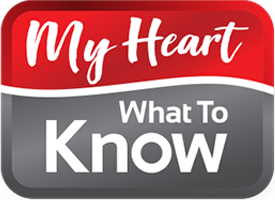Heart failure is a chronic condition in which the heart cannot pump blood efficiently enough to meet the body’s needs. Contrary to what the term may suggest, heart failure does not mean the heart has stopped working. Instead, it means the heart muscle is weakened, damaged or stiff, so it struggles to pump or receive blood effectively. Understanding heart failure, including its causes, symptoms, and treatment options, is essential for managing the condition and improving quality of life.
What is Heart Failure?
Heart failure occurs when the heart muscle weakens or becomes too stiff, making it difficult for blood to circulate adequately. Unlike a heart attack, which usually happens suddenly due to a blocked artery, heart failure develops gradually, often worsening over time.
- The term Congestive Heart Failure (CHF) is often used interchangeably with heart failure and refers to the build-up of fluid in the body due to poor circulation, affecting the lungs, liver, and kidneys.
Causes and Risk Factors of Heart Failure
Heart failure typically results from underlying health conditions that weaken the heart over time. Recognizing these causes and risk factors is vital for anyone aiming to prevent or manage the condition.
- Coronary Artery Disease (CAD): CAD is the leading cause of heart failure. Plaque builds up in the arteries, reducing blood flow and weakening the heart muscle over time. Acute heart attacks as a result of plaque buildup leads to immediate damage to heart muscle. If large and severe enough, this can lead to heart failure.
- High Blood Pressure: High blood pressure forces the heart to work harder to circulate blood, eventually thickening and stiffening or weakening the heart muscle.
- Diabetes: High blood sugar can damage blood vessels and the heart muscle which contributes to heart failure.
- Obesity: Excess weight increases blood pressure, stiffens and strains the heart, and raises the risk of other heart-related issues.
- Valvular Heart Disease: Faulty heart valves force the heart to work harder, often resulting in heart muscle fatigue or damage over time.
- Arrhythmias: Irregular heartbeats disrupt the heart’s rhythm and efficiency, increasing the likelihood of heart failure.
- Excess Alcohol Intake: Alcohol acts as a direct toxin to heart muscle, causing weakening of heart muscle and heart failure. It also raises blood pressure that can contribute to heart failure.
Recognizing the Symptoms of Heart Failure
Early detection of heart failure is essential for effective management. Although symptoms vary based on the type of heart failure, some common signs often signal the condition.
- Shortness of Breath: Because high pressure and in severe cases, fluid can accumulate in the lungs, many people with heart failure feel short of breath, particularly when lying down or after light exertion.
- Chest Pain: High pressures in the heart can cause chest pain even in the absence of plaque build up in the arteries
- Swelling (Edema): Fluid retention often causes swelling in the legs, ankles, feet, and abdomen. Some individuals may also experience sudden weight gain due to this retained fluid.
- Fatigue and Weakness: With reduced blood flow, muscles do not receive adequate oxygen, leading to extreme tiredness and a general feeling of weakness.
- Rapid or Irregular Heartbeat: Heart failure forces the heart to pump harder and in some cases, arrhythmia, causing a fast or irregular heartbeat.
- Dizziness, fainting: Low blood pressure or arrhythmia can lead to dizziness or fainting.
- Persistent Cough or Wheezing: Some individuals with heart failure develop a chronic cough or wheeze, sometimes producing pink-tinged mucus due to fluid build-up in the lungs.
- Loss of Appetite and Nausea: Fluid accumulation around the liver and digestive system can affect digestion, leading to reduced appetite and feelings of nausea.
- Difficulty Concentrating: Since heart failure affects blood flow to the brain, many patients report trouble focusing or experience mild confusion.
Recognizing these symptoms early can lead to quicker treatment. Therefore, if you or a loved one experiences these signs, it’s important to consult a healthcare provider promptly.
Treatment Options for Heart Failure
Although heart failure is a chronic condition, various treatment options can manage symptoms and improve quality of life. Combining medications, lifestyle adjustments, and sometimes medical devices can help patients achieve better health outcomes.
- Medications, including diuretics, ACE inhibitors, angiotensin receptor blockers (ARBs), angiotensin receptor-neprilysin inhibitors (ARNIs) beta-blockers, SGLT2 inhibitors, mineralocorticoid receptor antagonists (MRA) ivabradine and vericiguat. Other medications may be prescribed if there is a specific cause for the heart failure where there is a therapeutic option.
- Lifestyle Changes:
- Low-Sodium Diet: Because excess salt leads to fluid retention, a low-sodium diet is essential for heart failure patients. Avoiding processed foods and reading food labels can help keep sodium intake in check.
- Regular Exercise: Moderate exercise, like walking, strengthens the heart, boosts energy, and helps maintain a healthy weight. However, always consult with a doctor before starting an exercise program.
- Weight Monitoring: Tracking weight daily helps detect fluid retention early. Sudden weight gain and swelling can be a sign of worsening heart failure.
- Smoking Cessation and Alcohol Limitations: Both smoking and excessive alcohol harm the heart. Quitting smoking and limiting or eliminating alcohol can significantly benefit heart health.
- Limiting fluid intake: In some cases, your doctor may recommend limiting the amount of daily fluid intake.
- Treating Obstructive Sleep Apnea (OSA): If there is moderate to severe OSA, nightly CPAP therapy may be required.
- Medical Devices and Procedures, including a ICD (implantable cardioverter-defibrillator), a pacemaker or a left ventricular assist device (LVAD), ablation, valve clips or surgical procedures.
Talk to your doctor about which approach is right for you. Staying informed and following medical guidance can help manage symptoms and reduce hospitalizations.
Preventing Heart Failure Progression
While it’s not always possible to prevent heart failure entirely, managing the condition and preventing further damage to the heart is crucial for long-term health. Critical steps for preventing the progression of the condition include:
- Controlling Blood Pressure and Cholesterol: High blood pressure strains the heart. High cholesterol increases the risk of plaque build up and heart attacks. Regular monitoring and medication, when needed, help maintain healthy levels.
- Managing Diabetes: Since diabetes increases heart failure risk, controlling blood sugar levels through diet, exercise, and medication is essential.
- Following a Heart-Healthy Diet: Eating a low sodium diet rich in vegetables, whole grains, lean proteins, and healthy fats reduces the likelihood of heart disease and helps manage heart failure.
- Staying Active: Physical activity, controls cardiac risk factors and weight, keeps the heart strong and helps prevent further decline.
- Getting Regular Check-Ups: Frequent follow-ups with a healthcare provider allow for early detection of any worsening symptoms, enabling quicker intervention.
- Building a support system: Managing heart failure requires a long-term commitment, and having support from family and friends, support groups and your healthcare team can make the journey much easier.
Heart failure is a challenging condition that affects many aspects of life, but with the right care and lifestyle adjustments, managing symptoms and improving quality of life is possible. By understanding heart failure, its causes, and the available treatments, you can make informed decisions and take proactive steps toward better heart health.
—
An important step towards better health for many people is reaching a healthier weight, which can reduce the risk of cardiovascular disease. To find a physician near you who specializes in weight management, click here.
—
All the information provided on this site is for educational purposes only and is not a substitute for professional medical advice, diagnosis, or treatment. My Heart – What To Know is not a healthcare provider or clinic. ALWAYS consult with a qualified healthcare provider regarding any questions you may have about a medical condition. Never disregard professional medical advice or delay in seeking it because of something you have read on this website. If you think you may have a medical emergency, call 911 or go to the nearest emergency room immediately. No physician-patient relationship is created by this website or its use.
This article was sponsored by Novo Nordisk Canada. All content is created independently by My Heart – What To Know with no influence from Novo Nordisk.

